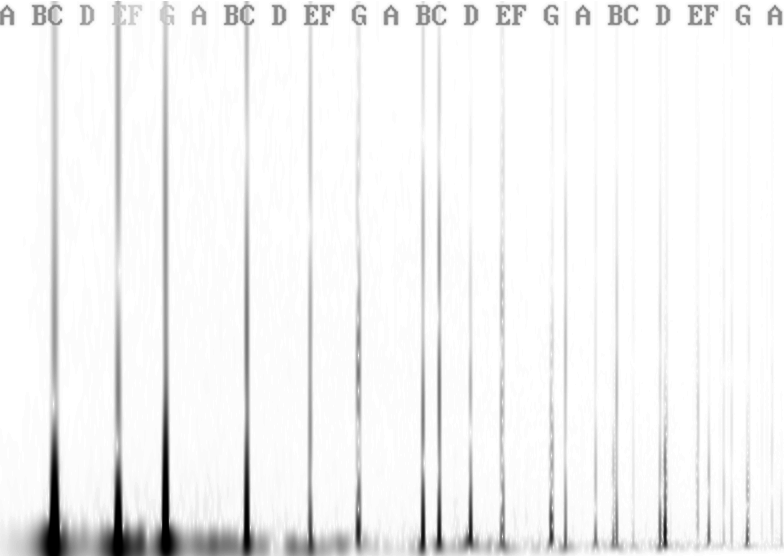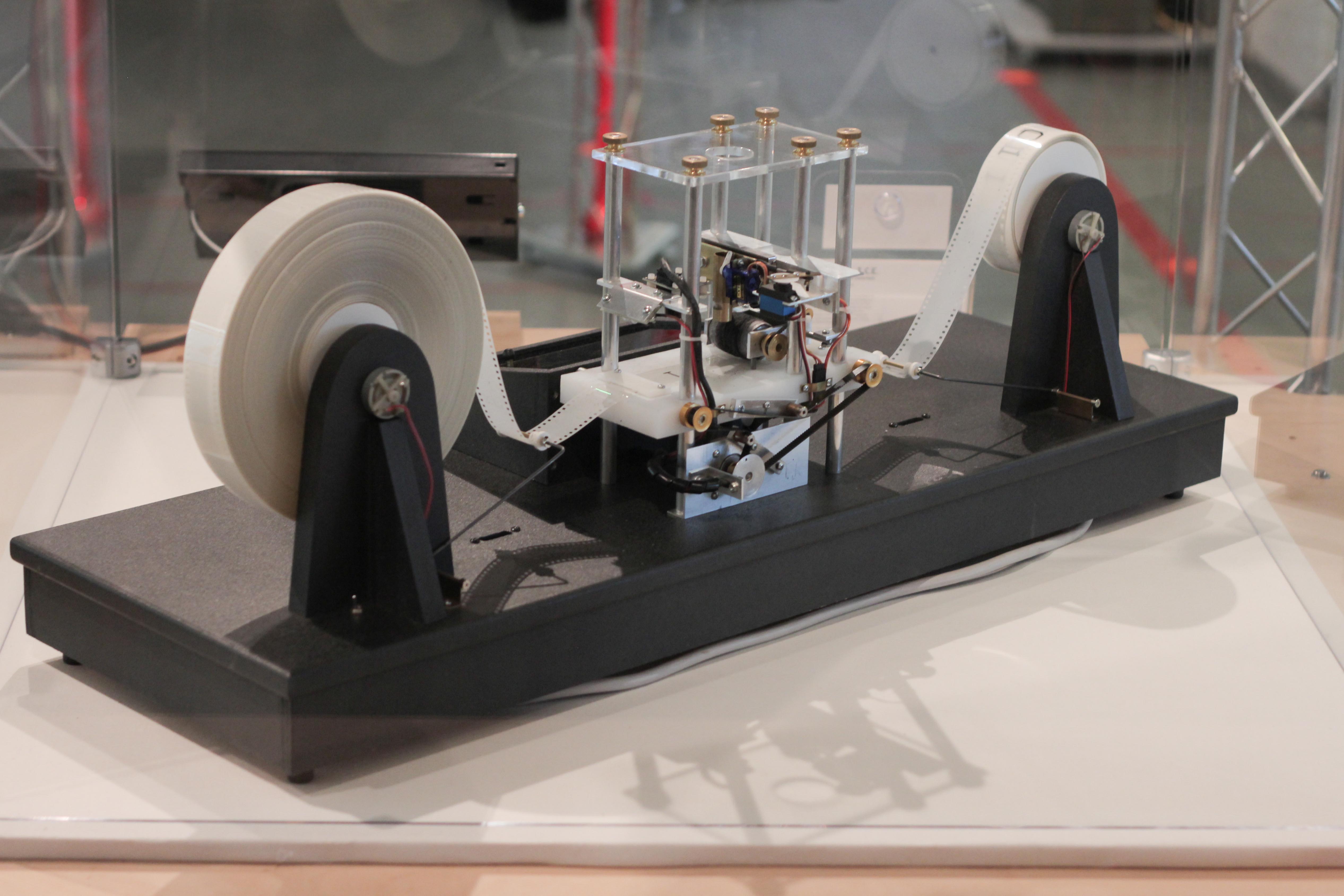|
Wang's Carpets
"Wang's Carpets" is a science-fiction short story by Australian writer Greg Egan, first published in ''New Legends'' edited by Greg Bear and Martin H. Greenberg on 5 April 1995. It was later included in '' The Year's Best Science Fiction: Thirteenth Annual Collection'' in 1996 and '' Best of the Best: 20 Years of the Year's Best Science Fiction'' in 2005, both edited by Gardner Dozois, as well as ''The Mammoth Book of Extreme Science Fiction'' edited by Mike Ashley in 2006. The short story was also included in Egan's novel ''Diaspora'' (but minorly reworked). The title refers to the mathematician Wang Hao (or Hao Wang in western order). Plot When the polis Carter-Zimmermann reaches the planet Orpheus in orbit around the star Vega, alien life is found in its oceans. An attempt for first contact fails, but micro probes sent down reveal their structure to be that of carpets made out of 20,000 unique polysaccarides. Closer inspection reveals, that the carpets are growing by a ... [...More Info...] [...Related Items...] OR: [Wikipedia] [Google] [Baidu] |
Greg Egan
Greg Egan (born 20 August 1961) is an Australian science fiction writer and amateur mathematician, best known for his works of hard science fiction. Egan has won multiple awards including the John W. Campbell Memorial Award, the Hugo Award, and the Locus Award. Life and work Egan holds a Bachelor of Science degree in Mathematics from the University of Western Australia. He published his first work in 1983. He specialises in hard science fiction stories with mathematical and quantum ontology themes, including the nature of consciousness. Other themes include genetics, simulated reality, posthumanism, mind uploading, sexuality, artificial intelligence, and the superiority of rational naturalism to religion. He often deals with complex technical material, like new physics and epistemology. He is a Hugo Award winner (with eight other works shortlisted for the Hugos) and has also won the John W. Campbell Memorial Award for Best Science Fiction Novel. His early stories featur ... [...More Info...] [...Related Items...] OR: [Wikipedia] [Google] [Baidu] |
Alien Life
Extraterrestrial life, colloquially referred to as alien life, is life that may occur outside Earth and which did not originate on Earth. No extraterrestrial life has yet been conclusively detected, although efforts are underway. Such life might range from simple forms like prokaryotes to intelligent beings, possibly bringing forth civilizations that might be far more advanced than humankind. The Drake equation speculates about the existence of sapient life elsewhere in the universe. The science of extraterrestrial life is known as astrobiology. Speculation about the possibility of inhabited "worlds" outside the planet Earth dates back to antiquity. Multiple early Christian writers discussed the idea of a "plurality of worlds" as proposed by earlier thinkers such as Democritus; Augustine references Epicurus's idea of innumerable worlds "throughout the boundless immensity of space" (originally expressed in his Letter to Herodotus) in '' The City of God''. In his first centur ... [...More Info...] [...Related Items...] OR: [Wikipedia] [Google] [Baidu] |
Australian Science Fiction Short Stories
Australian(s) may refer to: Australia * Australia, a country * Australians, citizens of the Commonwealth of Australia ** European Australians ** Anglo-Celtic Australians, Australians descended principally from British colonists ** Aboriginal Australians, indigenous peoples of Australia as identified and defined within Australian law * Australia (continent) ** Indigenous Australians * Australian English, the dialect of the English language spoken in Australia * Australian Aboriginal languages * ''The Australian'', a newspaper * Australiana, things of Australian origins Other uses * Australian (horse), a racehorse * Australian, British Columbia, an unincorporated community in Canada See also * The Australian (other) * Australia (other) * * * Austrian (other) Austrian may refer to: * Austrians, someone from Austria or of Austrian descent ** Someone who is considered an Austrian citizen, see Austrian nationality law * Austrian German dialect * Someth ... [...More Info...] [...Related Items...] OR: [Wikipedia] [Google] [Baidu] |
Croatian Language
Croatian (; ' ) is the standardized variety of the Serbo-Croatian pluricentric language used by Croats, principally in Croatia, Bosnia and Herzegovina, the Serbian province of Vojvodina, and other neighboring countries. It is the official and literary standard of Croatia and one of the official languages of the European Union. Croatian is also one of the official languages of Bosnia and Herzegovina and a recognized minority language in Serbia and neighboring countries. Standard Croatian is based on the most widespread dialect of Serbo-Croatian, Shtokavian, more specifically on Eastern Herzegovinian, which is also the basis of Standard Serbian, Bosnian, and Montenegrin. In the mid-18th century, the first attempts to provide a Croatian literary standard began on the basis of the Neo-Shtokavian dialect that served as a supraregional ''lingua franca'' pushing back regional Chakavian, Kajkavian, and Shtokavian vernaculars. The decisive role was played by Croatian Vukovi ... [...More Info...] [...Related Items...] OR: [Wikipedia] [Google] [Baidu] |
Aurealis Awards
The Aurealis Award for Excellence in Speculative Fiction is an annual literary award for Australian science fiction, fantasy and horror fiction. Only Australians are eligible for the award. History The Aurealis Award was established in 1995 by ''Chimaera Publications'', the publishers of '' Aurealis Magazine''. Unlike the other major Australian speculative fiction award, the Ditmar Award, it divides work into subgenre and age categories, and is judged as such. The award was originally given out in the following divisions: Science Fiction, Fantasy, Horror, and Young Adult. Two separate awards are given in each of those divisions, one for novels and one for short stories. A fifth division for Children's books was added in 2001 for fiction for 8-12 year olds, with separate awards for "Short Fiction" and "Long Fiction". With the 2008 Awards the "Short Fiction" children's fiction category became a category for "Illustrated Work/Picture Book". For the 2010 Awards, the two categ ... [...More Info...] [...Related Items...] OR: [Wikipedia] [Google] [Baidu] |
Worldbuilding
Worldbuilding is the process of constructing a world, originally an imaginary one, sometimes associated with a fictional universe. Developing an imaginary setting with coherent qualities such as a history, geography, and ecology is a key task for many science fiction or fantasy writers. Worldbuilding often involves the creation of geography, a backstory, flora, fauna, inhabitants, technology and often if writing speculative fiction, different races. This may include social customs as well as invented languages for the world. The world could encompass different planets spanning vast distances of space or be limited in scope to a single small village. World building exists in novels, tabletop role-playing games, and visual media such as films, video games and comics. Prior to 1900 most worldbuilding was conducted by novelists, who could leave imagination of the fictional setting in part to the reader. Some authors of fiction set multiple works in the same world. This is kno ... [...More Info...] [...Related Items...] OR: [Wikipedia] [Google] [Baidu] |
SF Site
SF may refer to: Locations * San Francisco, California, United States * Sidi Fredj, Algeria * South Florida, an urban region in the United States * Suomi Finland, former vehicular country code for Finland In arts and entertainment Genres * Speculative fiction (usually ''sf'') ** Science fiction or sci-fi (usually ''SF'') In film and television * , the Swedish film industry ** SF Film Finland, a Finnish film distributor * SF Channel (Australia) * , a German-language television network in Switzerland * , a Finnish film production company In music * Sforzando (musical direction) or sf, a musical accent * ''Subito forte'', a musical notation for dynamics (music) * Switchfoot, a band * Sasha Fierce, on-stage alter ego of American entertainer Beyoncé, and namesake of her album '' I Am... Sasha Fierce'' Other media * Saikoro Fiction, a Japanese role-playing game system * ''Street Fighter'', a series of fighting video games by Capcom Businesses and organizations ... [...More Info...] [...Related Items...] OR: [Wikipedia] [Google] [Baidu] |
Locus (magazine)
''Locus: The Magazine of The Science Fiction & Fantasy Field'', founded in 1968, is an American magazine published monthly in Oakland, California. It is the news organ and trade journal for the English-language science fiction and fantasy fields. It also publishes comprehensive listings of all new books published in the genres (excluding self-published). The magazine also presents the annual Locus Awards. '' Locus Online'' was launched in April 1997, as a semi-autonomous web version of ''Locus Magazine''. History Charles N. Brown, Ed Meskys, and Dave Vanderwerf founded ''Locus'' in 1968 as a news fanzine to promote the (ultimately successful) bid to host the 1971 World Science Fiction Convention in Boston, Massachusetts. Originally intended to run only until the site-selection vote was taken at St. Louiscon, the 1969 Worldcon in St. Louis, Missouri, Brown decided to continue publishing ''Locus'' as a mimeographed general science fiction and fantasy newszine. ''Locus'' succee ... [...More Info...] [...Related Items...] OR: [Wikipedia] [Google] [Baidu] |
Fourier Transformation
A Fourier transform (FT) is a mathematical transform that decomposes functions into frequency components, which are represented by the output of the transform as a function of frequency. Most commonly functions of time or space are transformed, which will output a function depending on temporal frequency or spatial frequency respectively. That process is also called ''analysis''. An example application would be decomposing the waveform of a musical chord into terms of the intensity of its constituent pitches. The term ''Fourier transform'' refers to both the frequency domain representation and the mathematical operation that associates the frequency domain representation to a function of space or time. The Fourier transform of a function is a complex-valued function representing the complex sinusoids that comprise the original function. For each frequency, the magnitude ( absolute value) of the complex value represents the amplitude of a constituent complex sinusoid with t ... [...More Info...] [...Related Items...] OR: [Wikipedia] [Google] [Baidu] |
Turing Machine
A Turing machine is a mathematical model of computation describing an abstract machine that manipulates symbols on a strip of tape according to a table of rules. Despite the model's simplicity, it is capable of implementing any computer algorithm. The machine operates on an infinite memory tape divided into discrete cells, each of which can hold a single symbol drawn from a finite set of symbols called the alphabet of the machine. It has a "head" that, at any point in the machine's operation, is positioned over one of these cells, and a "state" selected from a finite set of states. At each step of its operation, the head reads the symbol in its cell. Then, based on the symbol and the machine's own present state, the machine writes a symbol into the same cell, and moves the head one step to the left or the right, or halts the computation. The choice of which replacement symbol to write and which direction to move is based on a finite table that specifies what to do for each co ... [...More Info...] [...Related Items...] OR: [Wikipedia] [Google] [Baidu] |
Wang Tile
Wang tiles (or Wang dominoes), first proposed by mathematician, logician, and philosopher Hao Wang in 1961, are a class of formal systems. They are modelled visually by square tiles with a color on each side. A set of such tiles is selected, and copies of the tiles are arranged side by side with matching colors, ''without'' rotating or reflecting them. The basic question about a set of Wang tiles is whether it can tile the plane or not, i.e., whether an entire infinite plane can be filled this way. The next question is whether this can be done in a periodic pattern. Domino problem In 1961, Wang conjectured that if a finite set of Wang tiles can tile the plane, then there also exists a ''periodic'' tiling, which, mathematically, is a tiling that is invariant under translations by vectors in a 2-dimensional lattice. This can be likened to the periodic tiling in a wallpaper pattern, where the overall pattern is a repetition of some smaller pattern. He also observed that this con ... [...More Info...] [...Related Items...] OR: [Wikipedia] [Google] [Baidu] |


_-_på_dansk.jpg)

